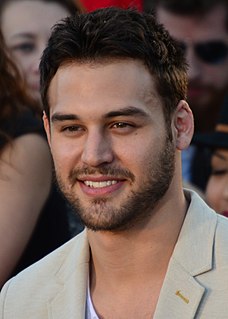A Quote by Jane Hirshfield
At another level, though, poems can craft an eraser - we can't revise the past, but poems allow us some malleability, an increased freedom of response, comprehension, feeling. Choice, what choices are possible for any given person, is another theme that's run through my work from the start.
Related Quotes
There are definitely connections between poems, but I wanted each to stand on its own. I guess it goes back to the idea of trying to zoom in and out, and to modulate, so there are different ways of looking at any experience for the reader. Even having short poems and long poems - there has to be some kind of variation in the experience of reading as a whole.
When Emily Dickinson's poems were published in the 1890s, they were a best-seller; the first book of her poems went through eleven editions of a print run of about 400. So the first print run out of Boston for a first book of poems was 400 for a country that had fifty million people in it. Now a first print run for a first book is maybe 2,000? So that's a five-time increase in the expectation of readership. Probably the audience is almost exactly the same size as it was in 1900, if you just took that one example.
I wrote the poems in Charms Against Lightning one by one, over almost a decade, and I did not write them toward any theme or narrative. But once I really got serious about putting together a book, I began to see that in fact there were themes across the poems, if only because my own obsessions had brought me back time and again to the same ground. I realized that any ordering of the poems would determine how those themes developed over the manuscript, and how the collection's dramatic conflicts were resolved.
It's difficult to talk about [W.S.] Merwin's poems, as it's hard to talk about a feeling or a smell. It is what it is, but so much so that it overwhelms both sense and the senses. I aspire to something about his work, that imbues his poems, though I'm not sure I could say what that is. A purity, maybe, the kind of purity that comes from being beaten, like steel.
I think the beauty of the film industry is that if another person tries to become another person or act like another person or imitate another person, they don't really get too far. When that person starts to realize who they are and what they can bring to the table, they start to blossom and grow. With that, it's not so much me looking towards my predecessors who have paved the way in the industry - it's more getting inspired. I get little bits and pieces of what I can take from any and everybody.





































